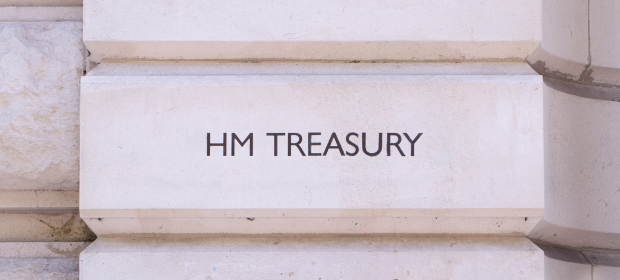With the next General Election expected to be held in the autumn, the spring budget (Wednesday 6th March) is likely to be the final major fiscal event of this current government.

The UK economy entered recession last month, and typically this would be expected to significantly impact a budget statement, but with the Conservatives polling far behind Labour, politics might take precedence over prudence…
Tax cuts
The Conservatives are considered the party of low tax, small state, and the Chancellor, Jeremy Hunt, is widely expected to offer some tax cuts to woo the Tory base as well as the wider public ahead of the election.
Income tax
A significant cut to income tax would be the headline-grabber if it were included in this budget. And Jeremy Hunt is under pressure from within his party, with the One Nation group of Tories urging him to reduce the tax burden on workers.
However, the Chancellor himself has cast doubt over whether this would be possible with the UK entering a recession, while economists have warned that public services can’t bear the weight of further spending cuts that would be required to fund them.
Cancelling the planned freeze in personal allowance is a second option for Jeremy Hunt, with the Resolution Foundation think tank claiming this would cost the same as a 1p cut to the basic rate of income tax (£7bn). However, cancelling the personal allowance freeze would result in more paying less tax, which might make it the better option for the Chancellor.
National Insurance Contributions
The National Insurance rate was cut by two percentage points in last year’s Autumn Statement, and another, smaller cut is possible this spring.
A 1p cut to NICs would cost the Exchequer £5bn, £2bn less than a 1p cut to income tax, making it the more affordable option for Hunt.
Inheritance tax
There was a lot of speculation last year that the government was planning to abolish inheritance tax ahead of—an increasingly likely—defeat at the next General Election, although No. 10 dismissed those reports as ‘just speculation’.
Abolishing, or significantly cutting inheritance tax would be hugely popular with the affluent Conservative base, but very unpopular with the majority of the country. Currently, just 4% of the British public is impacted by inheritance tax, although this percentage will increase as a result of rising house prices and the freeze on the inheritance tax threshold.
Duty changes
Changes to duty on goods are often contentious, and this spring budget is likely to see vaping and—as always—steal the headlines.
Vape duty
According to reports, the Chancellor is considering a ‘vaping products levy’ on the liquid found within vapes. This duty would be paid on imports by the manufacturers in an attempt to make them less affordable for children.
However, to ensure vaping is still cheaper than cigarettes, a one-off increase in tobacco duty would also be brought in.
Fuel duty
Fuel duty was set to rise by 5p at the end of March, the first increase since 2011, but it’s thought to be likely that Jeremy Hunt will extend this freeze ahead of the election.
Help for first-time buyers
The Chancellor is thought to be planning to introduce a 99% mortgage scheme to allow first-time buyers to get on the housing ladder with a 1% deposit, with the government acting as the loan backer.
However, critics of the proposals will say that cutting the upfront cost of a home doesn’t solve the longer-term issue, and that homeowners could end up in negative equity if their debts end up larger than the value of the house.
Additionally, Jeremy Hunt is looking at ways to overhaul Lifetime ISA (LISA) rules. LISAs offer a bonus from the government on savings spent on buying a first home, but currently, there are penalty charges if the money saved isn’t spent on property, or if that property is above £450,000.
It’s possible that those penalty charges will be reduced, and/or the property value limit will be increased in the spring budget.
If you’d like to find out more about what the spring budget means for your personal finances, why not speak to the experts? Get in touch with us today and we’ll be happy to advise you on how best to manage your money in 2024 and beyond.

 © 2019 Warr & Co Chartered Accountants. Warr & Co Chartered Accountants is a member of The Institute of Chartered Accountants in England & Wales (ICAEW). Whilst the information detailed here is updated regularly to ensure it remains factually correct, it does not in any way constitute specific advice and no responsibility shall be accepted for any actions taken directly as a consequence of reading it. If you would like to discuss any of the points raised and / or engage our services in providing advice specific to your personal circumstances, please feel free to contact any one of the partners on 0161 477 6789 or contact us via our website forms. Warr & Co Chartered Accountants are registered to carry our audit work in the UK, our audit registration number is C002961684, for more information please visit www.auditregister.org.uk.
© 2019 Warr & Co Chartered Accountants. Warr & Co Chartered Accountants is a member of The Institute of Chartered Accountants in England & Wales (ICAEW). Whilst the information detailed here is updated regularly to ensure it remains factually correct, it does not in any way constitute specific advice and no responsibility shall be accepted for any actions taken directly as a consequence of reading it. If you would like to discuss any of the points raised and / or engage our services in providing advice specific to your personal circumstances, please feel free to contact any one of the partners on 0161 477 6789 or contact us via our website forms. Warr & Co Chartered Accountants are registered to carry our audit work in the UK, our audit registration number is C002961684, for more information please visit www.auditregister.org.uk.